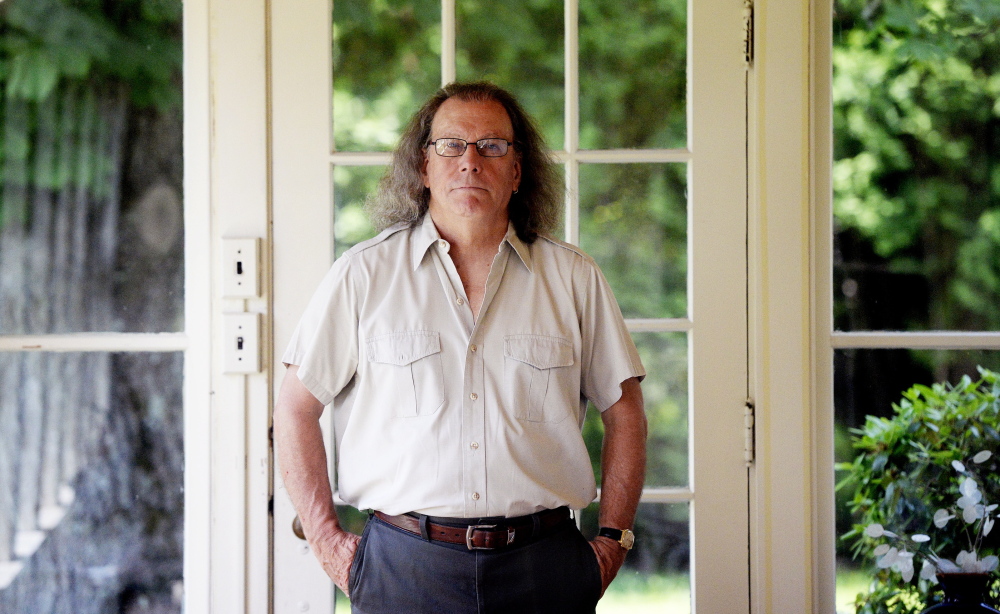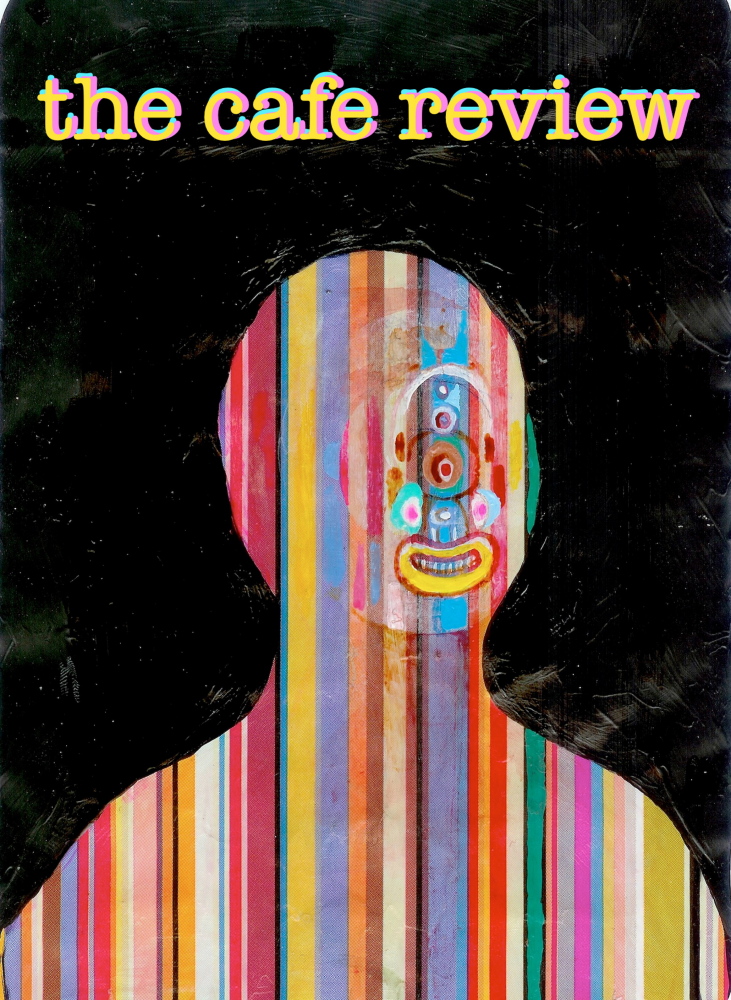With his straw Stetson, ever-present shades and substantive smile, poet, publisher and founder of Café Review Steve Luttrell is a Portland elemental, as recognizable and genuine a figure on Congress Street and at regional cultural events as painter Michael Waterman or historian-politician Herb Adams. Never a hippie, there has always been more of the hipster’s humor and intensity about Luttrell, plus a musician’s sense of rhythm. He plays with the Kelly Lawrence Quartet.
During this interview, at Coffee By Design, at least five passersby rapped on the window to catch the poet’s attention. World famous in Portland, we joke.
Luttrell is a native of South Portland who transferred from that community’s high school to North Yarmouth Academy. “I was of such an independent nature that I did not see eye-to-eye with the city’s administration over the issue of hair length,” he said.
The aspiring poet went on to graduate from Franklin Pierce College in New Hampshire at the end of the 1960s.
Then there was a great deal of traveling across the country and in Europe, attending and auditing poetry schools, colleges and seminars. Luttrell has five major editions and five chapbooks to his credit, with “Plumb Line” set for publications by North American Books next year and distributed by Random House in the United States and by Penguin in the U.K.
From 2009 to 2011 the City of Portland honored Steve as the poet laureate, a job he took seriously by organizing “The Poet’s Café” on community television, an amplification of the well-attended Café Review readings.
It is Café Review, Portland’s handsome, color-illustrated poetry journal that is the focus of our discussion. In the world of print and poetry today, Café Review stands out as a self-funded forum for many of the finest local, regional and national writers. In the course of a remarkable 25 years, it has printed the work of 12 Pulitzer Prize winners, as well as a Homeric list of fine poems by the likes of Kate Barnes, Lawrence Ferlinghetti, Walter Butts, Betsy Sholl, Carl Denis and Patricia Ranzoni. Thus my first question to Steve:
WDB: It is unusual for poetry journals these days to last anything like a quarter of a century. I have been an interested occasional reader, and I went back over the complete run at the Portland Public Library’s Portland Room. Impressive! How did this get started?
SL: Café Review was an outgrowth of reading by local poets at Woodford’s Café, which, oddly, stood in the parking lot off Spring Street behind the Cumberland Club. Portland has a tradition going back before Longfellow, when the local newspapers published his first verse, and continuing to 1971-1980, when (poet) Bruce Holsapple brought the literary journal, Contraband, down from the University of Maine. When it folded, there was a 10-year gap. In 1989, we began picking up poems from the reading and launched a 16 to 20 page review, run off after hours in a print shop, collated and stapled at the late Pat Murphy’s bookstore. We sold it for a dollar. Pat and Mark Souders were the key to the operation. Then, in 1993, we became a quarterly.
WDB: There are those who would say, why bother? Interest in poetry has faded in print media, here in Maine and nationally.
SL: It is very complex. By the 1940s, the so-called New Critics – mostly teachers and publishers – held sway with poets. Robert Frost, T.S. Eliot and William Carlos Williams were virtually household names. We were even promised an “Age of (Robert) Lowell.” Then came the Beat Poets and a new wave of academics. By the late 20th century, interest had moved to readings and raves and an academy-like system in higher education.
WDB: In one of your Café Review readings you brought Beat Poet Gregory Corso to Portland. What was that like?
SL: Corso remembered calling Robert Lowell “Bob” during one of the latter’s readings. You couldn’t get two different sorts of personalities and different manner of poems. Still, they both loved their craft.
WDB: This may sound like jingoism to many to ears, but Portland and the state have a remarkable string of literary figures beginning with Henry Longfellow, whose statue dominates the west end of downtown Congress Street, and including Edwin Arlington Robinson, Edna St. Vincent Millay, Louise Bogan and John Neal, whose journal, The Yankee (1828), was the first publication anywhere to review the work of Edgar Allan Poe. What’s your take on this literary connection?
SL: Well, Poe was from away, and he never forgot the forum or the praise. We have had an edition called “Our World Poets” including work in the original language and translation. My roots go back to the stories my father and grandfather told me about local people and places. I’ve just been reading the manuscript poems of the late Pat Murphy and was surprised to find them as humorous and quirky as anything written today.
WDB: From my view as a reader and a local historian, Café Review has much to be proud of, especially for a journal funded by subscription and angels. What of the future?
SL: I am staying put. As long as good poems keep appearing and the great staff – including (senior art editor) Wayne Atherton, who has been a key element for 23 years – continues to produce with their usual enthusiasm and professionalism, Café Review should survive. Of course, like any effort, the bottom line is money. We are now online thanks to webmaster Katy Benedict. Costs rise and, if we don’t come up with the money, we don’t go to print.
WDB: Well, these are strange fiscal times, but Café Review has weathered many storms and grown into a Portland treasure. Here’s one casual reader who looks forward to more.
William David Barry is a local historian who has authored/co-authored seven books, including “Maine: The Wilder Side of New England.” He lives in Portland.
Send questions/comments to the editors.




Comments are no longer available on this story